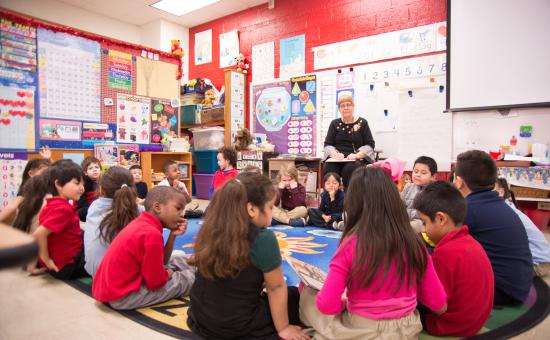History of collective bargaining
01/12/2022
This legislative session ISTA is advocating for the restoration of some aspects of bargaining to give teachers a voice in their working conditions. We believe restoring bargaining rights on issues involving healthy and safe schools, manageable class sizes and adequate prep time will not only benefit students’ learning conditions, but also address the growing concern of unfair working conditions placed on educators.
The lack of professional respect is one of the top reasons teachers leave the profession. Restoring teachers’ right to bargain these working conditions can address some of the causes of educator burn out.
How To Talk About Bargaining
Through effective organizing in our communities, there are opportunities to communicate the importance of restoring bargaining rights. From public polling, we know that many parents and community members support teachers negotiating for pay and certain working conditions. This support is strongest for teachers negotiating healthy and safe schools, appropriate class sizes and adequate prep time for educators. Giving teachers a voice in schools is as important to parents as the impact on students.
When talking with parents and the community about restoring educator rights to bargain working conditions, talk about giving teachers a voice and how educators are working together to improve schools.
- It’s better for both students and teachers when educators have a voice in school conditions.
- Whether we work in a school, factory or office, we should have the right to band together for working conditions that let us do our jobs safety and well.
- In schools, educators should be allowed to work together through their union to get contracts that include class size limitations and prep periods for teachers to prepare lessons and grade work.
- The legislature has blocked educators from having a voice in their working conditions and this has resulted in unmanageable class sizes and unsafe conditions – particularly during the pandemic.
Timeline
1973
Indiana becomes the 25th state to enact a collective bargaining law for teachers. Teachers were granted bargaining rights that included not just salary and salary-related benefits, but hours and a wide-variety of discussable items such as working conditions, curriculum, textbooks, teaching methods, class sizes and much more. These were permitted to be bargained, because they had been in the prior, mutually agreed contract.
1972 – 2011
Over the decades, there were several administrative and judicial decisions interpreting the enacted law but very few substantive amendments.
2011
In April, then Gov. Mitch Daniels signed into law a statute restricting bargaining to only salary and salary-related benefits. All subjects of bargaining except salary and salary-related benefits were prohibited. Previously bargainable items such as the school calendar, dual credit or other postsecondary credit programs, evaluations and more, including the previously bargained discussable items mainly impacting working conditions, were eliminated.
2015
The Indiana Education Employment Relations Board (IEERB) was given administrative authority and oversight of the bargaining process and content of agreements. Supplemental payments to certain teachers were specifically excluded from bargaining, even though they were clearly wage-related.
2016
Further expanded IEERB authority.
2017
Replaced performance grants and stipends with the Teacher Appreciation Grant program as a discussable item, not a bargainable one, even though a stipend is clearly a wage-related issue.
2019
Added the requirement that there be two public hearings related to the negotiations of the bargained agreement.
2021
Excluded payments made under the Student Learning Recovery Grant program from bargaining.
